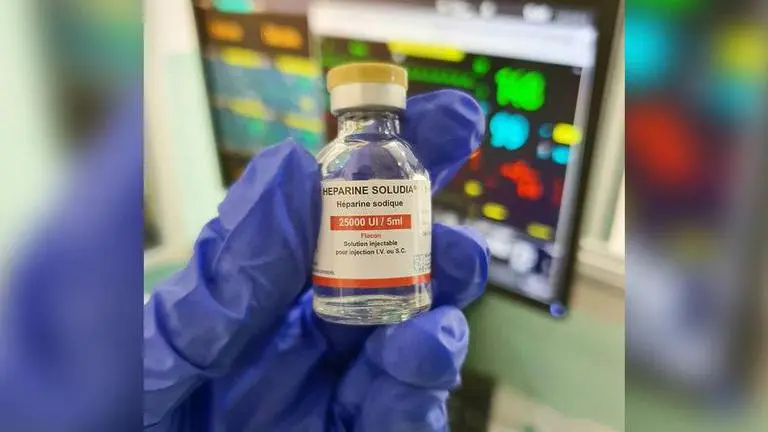Updated 6 August 2021 at 22:59 IST
Blood thinners reduce need for organ support in moderately ill COVID patients, says study
A large clinical trial shows that treating moderately ill hospitalised COVID-19 patients with a full-dose blood thinner reduced their need for organ support.
- Lifestyle News
- 2 min read

According to a comprehensive clinical trial done worldwide, treating moderately ill hospitalised COVID-19 patients with a full-dose blood thinner reduced their need for organ support like mechanical ventilation and improved their chances of leaving the hospital. However, when this treatment technique was used on seriously ill COVID-19 patients who required intensive care, the results were not the same. The New England Journal of Medicine has published the formal findings from the trial, funded in part by the National Heart, Lung, and Blood Institute (NHLBI), which is part of the National Institutes of Health.
Blood thinners help prevent clots from forming in body
According to researchers, blood clots were accumulated throughout the bodies of some people who died from COVID-19, even in their smallest blood arteries. Antithrombotics, often known as blood thinners or anticoagulants, are drugs that assist prevent clots from forming in the body. Doctors didn't know which antithrombotic medicine to use, at what dose, or when antithrombotics may be beneficial during COVID-19. Three worldwide partners collaborated and coordinated their trial methods to investigate the effects of utilising a full or therapeutic dose of the blood thinner heparin vs a reduced or prophylactic, dose of heparin in moderately and critically sick patients hospitalised with COVID-19.
Patients hospitalised for COVID-19 but did not require organ support were classified as moderately unwell, whereas those who were hospitalised for COVID-19 but required intensive care, which included respiratory or cardiovascular organ support, were classified as critically ill.
The trial results included 1,098 critically sick patients and 2,219 moderately unwell in the final analysis. Researchers looked at how long moderately and severely sick patients were without organ support up to 21 days after enrolling. They discovered that full-dose heparin reduced the requirement for organ support by 99 per cent in moderately unwell individuals compared to those who got low-dose heparin. Major bleeding occurred in a small number of individuals, but it happened seldom. Full-dose heparin reduced the occurrence of significant thrombotic events in critically sick patients, but it did not lessen the requirement for organ support or raise their chances of leaving the hospital early following therapy.
Advertisement
The Canadian Institutes of Health Research, the National Institute for Health Research (UK), the National Health and Medical Research Council (Australia) and the National Institutes of Health (US) are among the international funding organisations supporting the collaborative trials.
Image Credit: @healthy.human.like.u- Instagram Image
Published By : Rohit Ranjan
Published On: 6 August 2021 at 22:59 IST
